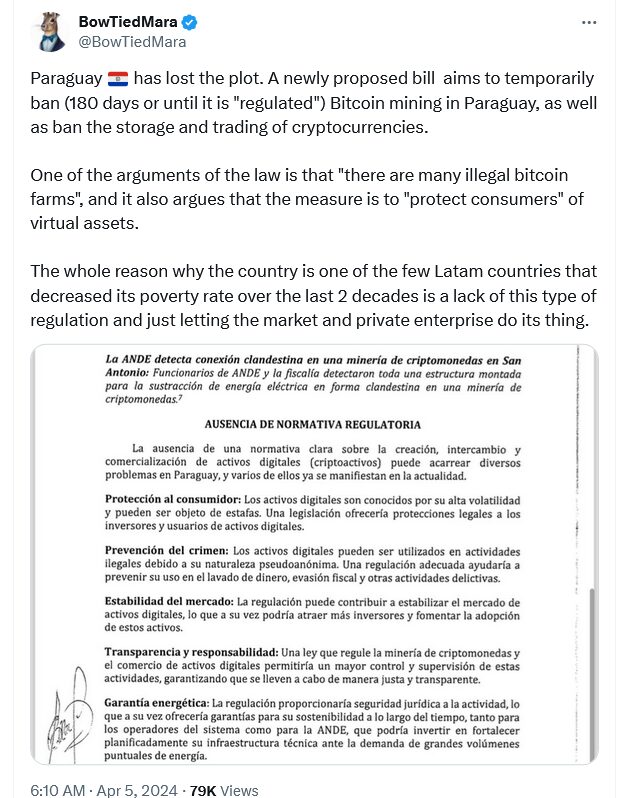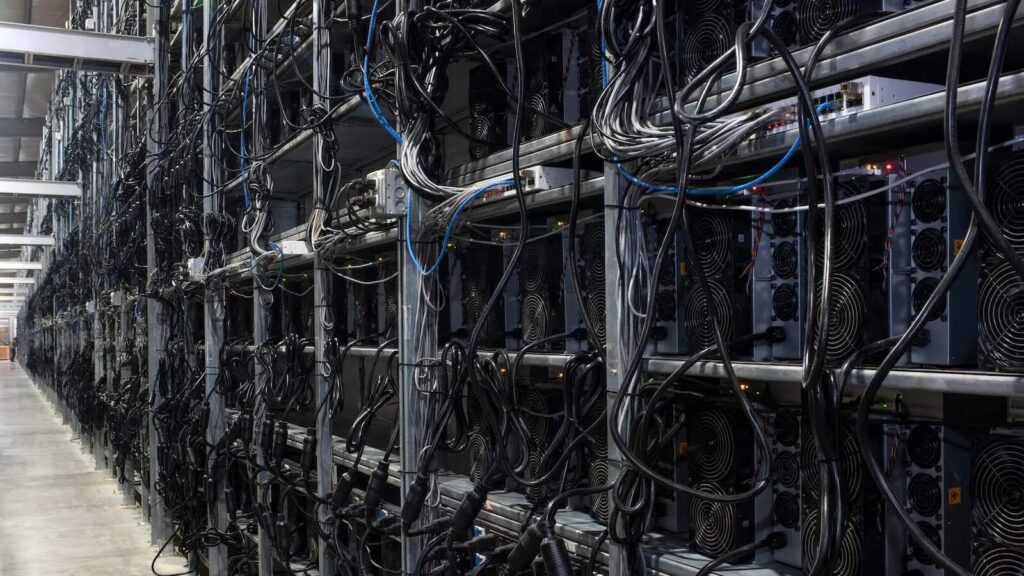Paraguay is currently facing a contentious debate over a proposed bill to ban cryptocurrency – Bitcoin mining, with potential economic repercussions looming large. The move could cost the country more than $200 million annually and has sparked concerns over the future of Bitcoin mining in the region.
The Economic Impact of the Proposed Ban

Lawmakers in Paraguay introduced a draft bill on April 4 aimed at outlawing crypto mining due to concerns about illegal operations siphoning off electricity and disrupting the national power grid. If implemented, this ban could severely impact the country’s economy, potentially resulting in annual losses exceeding $200 million. According to Jaran Mellerud, co-founder and chief mining strategist of Hashlabs Mining, this loss estimation is based on the assumption that 500 megawatts of legal miners pay $0.05 per kilowatt-hour in operating expenses. This figure underscores the significant role Bitcoin mining has played in bolstering Paraguay’s trade balance, a contribution that could be jeopardized if the ban is enacted.
Read more: The Unpredictable Dynamics of the Current Crypto Market: Bitcoin Halving in 10 Days
Challenges and Controversy Surrounding Bitcoin Mining

The proposed ban presents challenges for Paraguay, particularly considering the presence of major industry players like Marathon Digital Holdings, which has invested in mining operations near the Itaipu hydroelectric power plant. This site has been attractive to miners due to surplus electricity generated by the Itaipu Dam, which traditionally exported excess power to Brazil. However, recent reports suggest that the influx of Bitcoin miners, operating at slightly higher prices, has strained local resources and led to disruptions in the power supply. Lawmakers cite instances of power interruptions linked to illegal mining activities, prompting concerns over grid stability and economic losses.
Read more: U.S. Government NIST Allocates $3.6 Million to Combat Cybersecurity Skills Shortage
Conclusion
The situation in Paraguay underscores the complex interplay between cryptocurrency mining, energy resources, and regulatory oversight. While Bitcoin mining has brought economic benefits to the country, concerns over illegal operations and grid strain have spurred legislative action. As the debate unfolds, the fate of Bitcoin mining in Paraguay remains uncertain, with potential implications for the broader cryptocurrency industry. The outcome of this regulatory move will likely influence how other nations approach the intersection of crypto mining, energy sustainability, and economic development in the future.






